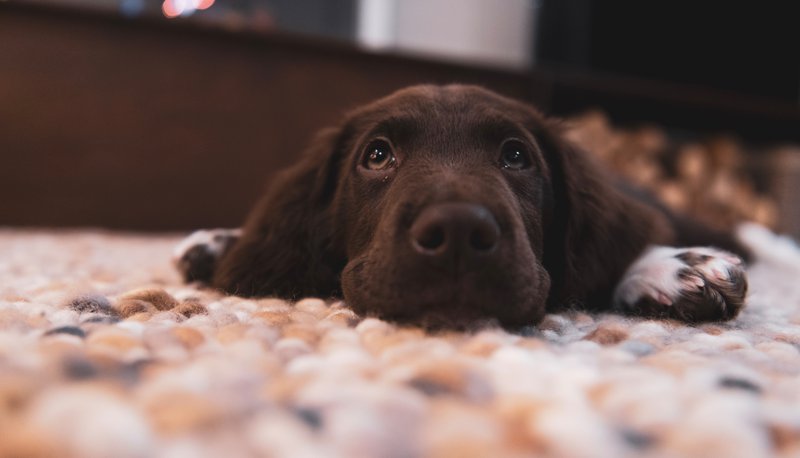Pet owners should never feed these ‘human foods’ to dogs
Updated | By El Broide
Dr Guy Fyvie details the foods we
enjoy that could be dangerous to our pets at home.

It’s a common scenario at homes of pet owners. Sitting by the dinner table having a delicious plate of food after a long day and the family pet is sitting close by with their big eyes looking straight at you begging for a piece of food. Most times, humans don’t think twice about what ‘human food’ they feed their pet, but Dr Guy Fyvie explains that the wrong food can be detrimental to your pet's health.
Dr Guy Fyvie is a Hill’s Pet Nutrition’s veterinary adviser and shares some insight into what food and other ‘hidden’ items around the house can be poisonous to dogs and cats that pet owners may not know of.
In a bid to raise awareness, Dr Fyvie shares a detailed list on what your pets should never ingest:
– Raisins and grapes are poisonous for dogs and cats. If ingested in large enough quantities, it can cause kidney failure. The amount needed to be eaten to result in this is variable, so it s best to completely avoid these items.
– There are several common plants in many gardens and
houses in South Africa that pet parents may not know present a danger to their
cats and dogs. These include lilies, azalea, oleander, amaryllis,
chrysanthemum, aloe vera, begonia, English ivy, hydrangea, tomato plants, and
delicious monsters. Especially dangerous is the cycad, and its seeds, which can
cause liver failure even in small doses.
– All medicine and household cleaning supplies should be stored in a cupboard out of your pets’ reach or secured so that they can’t access them.
– Cockroaches, crickets, and beetles can also be harmful
to your pet as they may carry parasites or be toxic themselves. Cat parents
should be particularly aware as cats love bringing their pet parents gifts in
all shapes and forms.
READ: The world’s most dangerous cheese contains live maggots
– If you, as a pet owner, are unsure of what is safe for
your pet to consume, do a quick Google search or call a vet. Some of the most
common search results:
* Artificial sweeteners, like xylitol (found in chewing gum and sweets): even a tiny amount can result in low blood sugar, seizures, liver failure or even death.
* Garlic and onions: these foods contain thiosulfate, which causes oxidative damage to red blood cells, resulting in hemolytic anemia.
* Nuts: not all of them, but the ones most high in fat (like macadamia) can cause obesity and pancreatic issues in dogs. Others that are small and can be scarfed down in seconds are a choking hazard.
* Cinnamon: although it is not poisonous and ingestion
may not have an immediate reaction, it can irritate the lining of their mouths
and result in inflammation which can lead to bleeding gums. Large amounts of
the spice and small amounts of the essential oil (used in aromatherapy) can
lead to low blood sugar, liver disease, vomiting, diarrhoea and changes in
heart rate. Inhalation of the powder can result in choking and lung irritation.
READ: ‘Friends’
fan spots hilarious editing blunder
The doctor adds that chocolate is also a big no-no for
pets and that dark chocolate especially should never be given to a pet.
Finally, the vet explains that while giving pets delicious ‘human food' may seem like a way to show your pets love, rather focus on activities like spending time with them, taking them for a walk, and feeding them food that is both healthy and nutritious.
Image courtesy: Pexels
Show's Stories
-
Shein’s supply chain stalls: What it means for SA buyers
A number of factories that supply e-commerce site Shein have stopped bus...
Stacey & J Sbu 16 hours ago -
Uncovering the truth: Titanic captain’s last moments
A new book exploring the death of Edward John Smith, captain of the Tita...
Stacey & J Sbu 16 hours ago